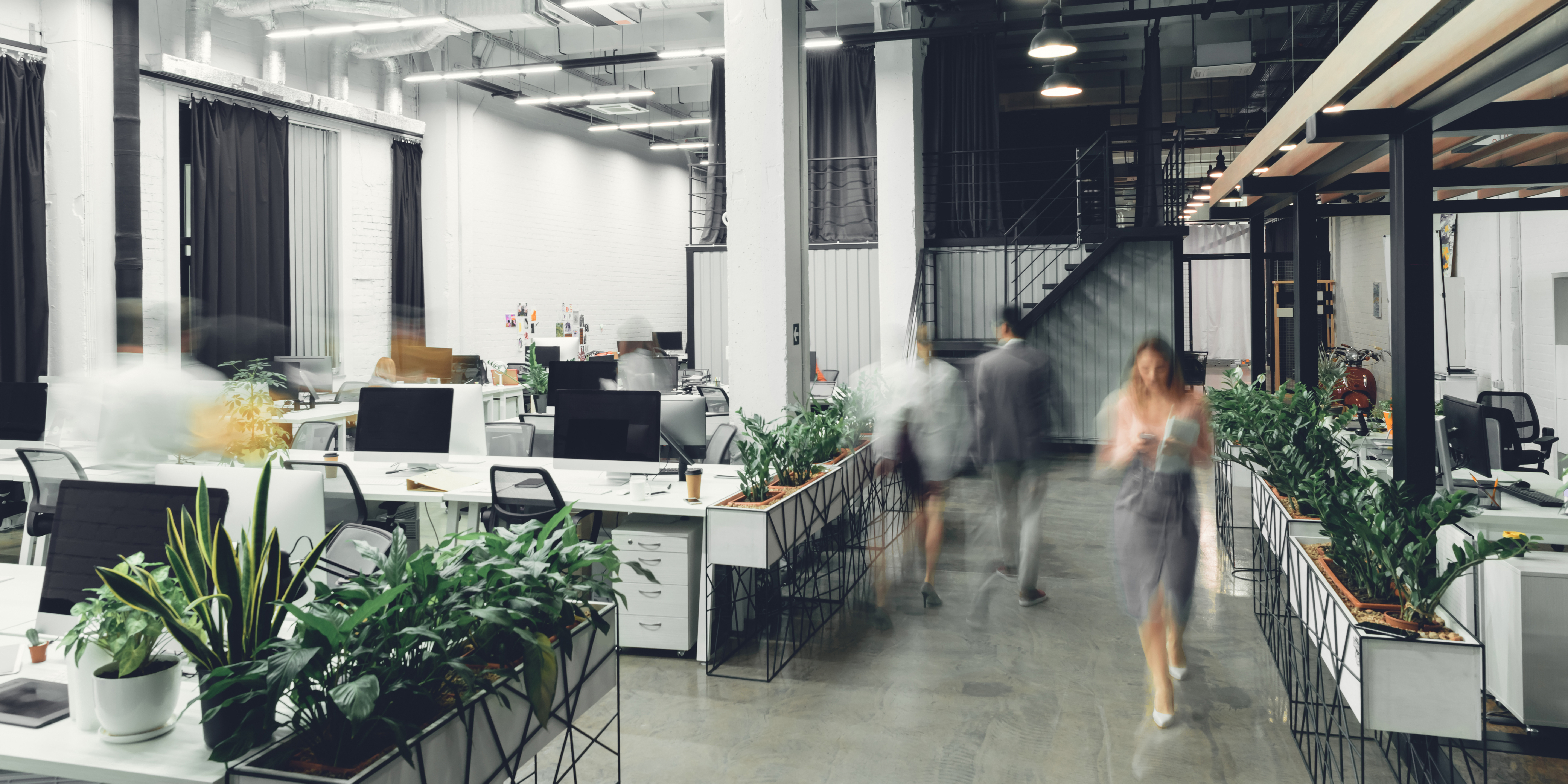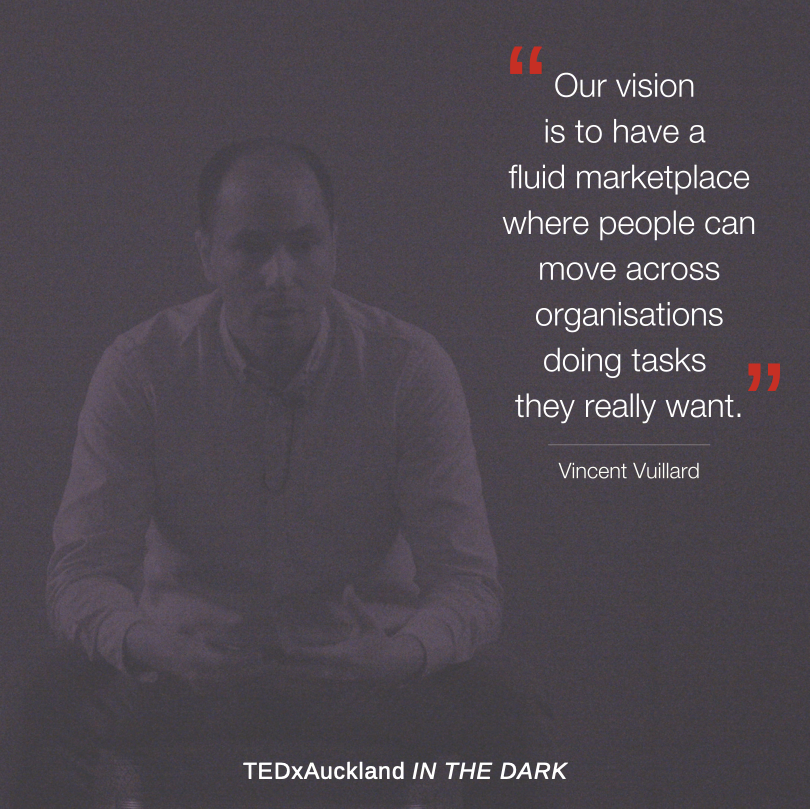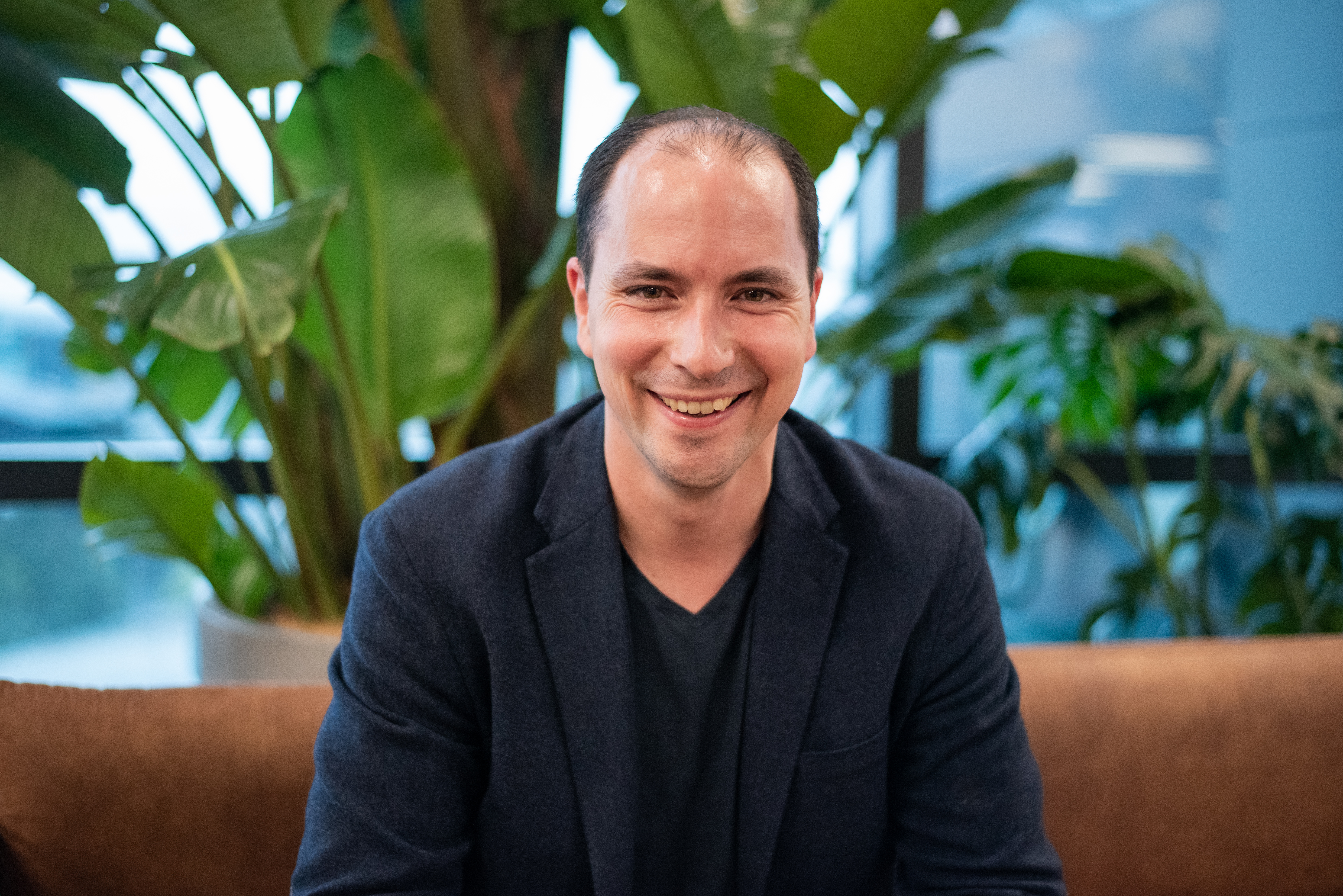In 2019, Vincent Vuillard stood upon the TEDxAuckland stage to talk about the constraints of yesterday’s workplace in meeting today’s challenges. He laid bare the true value of flexibility and working from home, stating that the technology required to make it a reality already existed.
Furthermore, Vincent imagined a working world with intrapreneurial cultures, where employees could leverage their strengths across different roles or even multiple organisations in an ecosystem. This became manifest through HIVE by FutureWork Studio, a collaborative platform he co-designed and developed that allows workers to merge the variety of a portfolio career with the stability of being part of an organisation.
Delivered at a completely one-of-a-kind ‘In the Dark’ event, Vuillard’s talk, though intriguing, was met with feedback that immediate implementation was a step too far for many.
‘Change was starting to happen but there was a mindset of hesitance,’ he says.
That was until COVID-19 hit.
Recently, TEDxAuckland sat down with Vincent to hear his thoughts on the state of the workplace post-pandemic.
‘People started contacting us, confirming that the workplace shift we were hoping to see was now playing out in reality. We’ve also been working directly with many organisations who have started to transform to a more intrapreneurial and adaptive culture, using HIVE to create a unique way for employees to learn in the flow of work.’
Vuillard says that many of the themes of his talk have started to be seen as a pathway to implement a different way to work.
‘Everything was already there, it was just our mindset that was holding back its implementation. COVID accelerated everything.’
Despite having confidence in the likely success of more entrepreneurial and flexible ways of working, Vuillard admits to being surprised how well it worked for so many.
‘It was the speed at which it changed that we didn’t predict. For years, we were analysing trends, looking at how a revised way of working offers a greater sense of purpose and fulfilment from life overall and not just in work. And then it seemed to literally happen overnight.’

Recruiters now relay to Vuillard that one of the first questions employees ask is in relation to how they work, not what they work on. Additionally, there’s an increasing demand in wanting to understand what an employer’s long-term purpose is.
‘We see that our customers are able to create an environment where their employees can find more fulfilment in their work life and feel more valued. Productivity, engagement and retention all increase: it’s a win for everyone.’
Considering how quickly workplaces pivoted though, could we revert back just as fast?
Vuillard doesn’t believe so.
‘The results speak for themselves: it’s not one or the other. We’re seeing an organic hybrid model emerge. You might have someone working in an office environment when face-to-face engagement is key - if coaching for example, or when collaboration or ideation is needed. Then they work from home, or perhaps a shared space closer to home, on work that benefits from focus or when they need to better balance other commitments. Research is showing this is a really productive and engaging way to work.’
Since speaking at TEDxAuckland in 2019, the reality of Vincent’s idea regarding the modern workplace has only evolved.
‘We’ve seen really exciting outcomes with HIVE; ecosystems of organisations are now coming together on the same platform to work and learn together in new ways. We’ve also broadened our focus to look at how this way of collaborative problem solving can be applied more broadly to specific challenges like sustainability and upskilling at scale.’
When asked how we continue on this path to reimagining work, Vincent states that one of the key areas is sharing ideas and being open to emerging and new perspectives. He cites platforms like TEDxAuckland as a space that is open to discussion and collaboration.
One insight Vuillard offers comes from observing the power of using ‘and’ instead of ‘but’ in everyday conversations, a premise found in theatre improv.
‘Often in the workplace, people put forward an idea and others sometimes respond “Yes, but…” They shut down the idea! What I’m suggesting is that we challenge ourselves to use ‘and’ instead, which builds on ideas and unlocks further innovation.’
‘At the end of the day,’ he says, ‘you’ll organically figure out if the idea will work or not. It’s so important for the future of work to involve environments where sharing is welcomed and where new ideas spark new ways of doing things. We’re now seeing what a workplace can look like when we are open to new ideas - it’s what we know makes TEDxAuckland such a great catalyst for innovation.’
Watch Vincent’s talk here.

